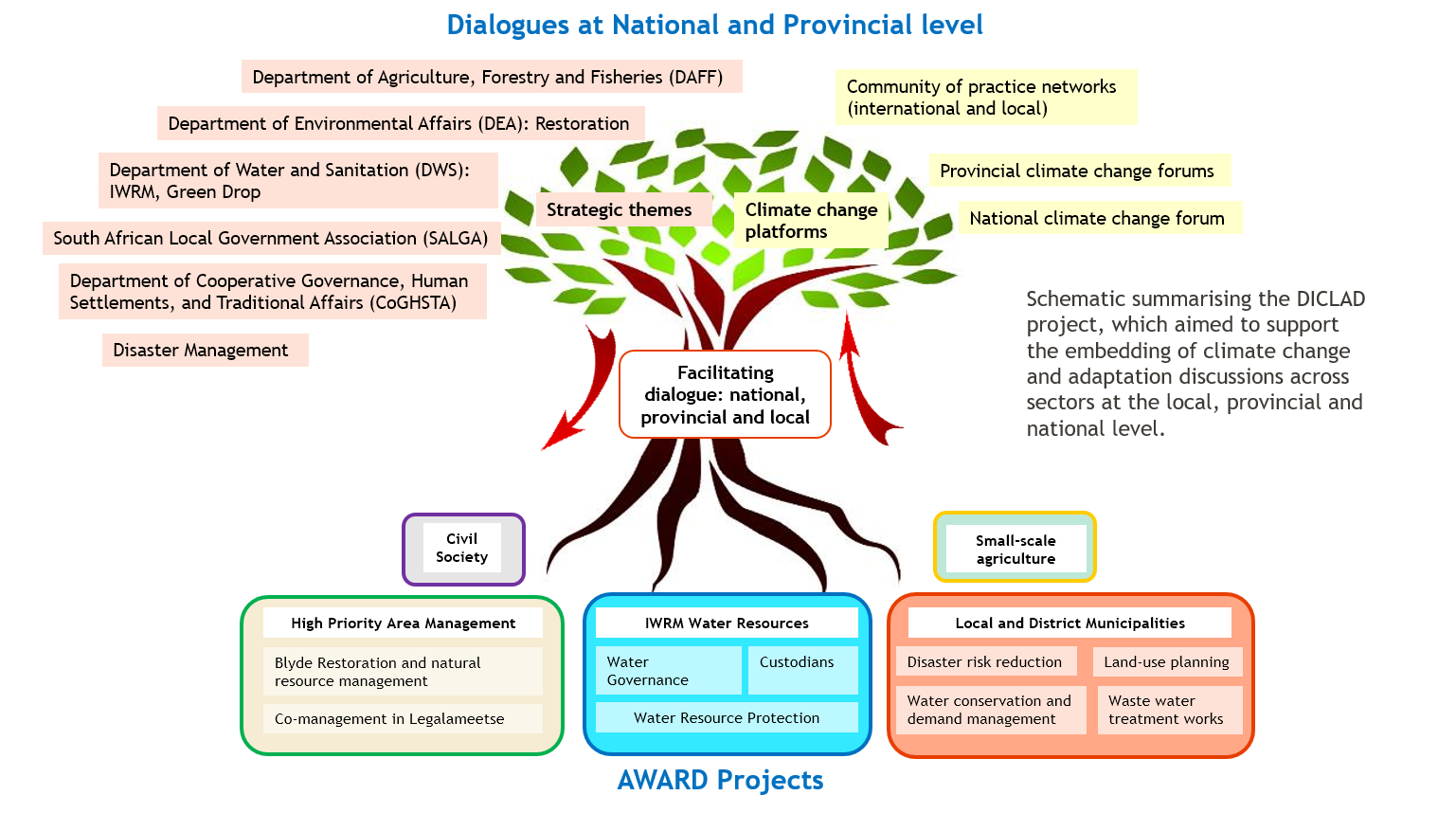
The Dialogues for Climate Change Literacy and Adaptation (DICLAD) project showcases a new approach to “demystifying” climate change and make adaptation “everyone’s business” which we used to embed climate change into other AWARD projects.
We designed systemic dialogues which supported a reflective learning process around people’s areas of focus (including their values and interests) and their lived experiences. This allows people to construct new meaning from what is relevant to them in their context regarding the impacts of climate change.
The project makes an important contribution to the emerging science of effective climate change communication, by providing an example of a process that is embedded in rural development projects rather than as a stand-alone intervention, and which focuses on localized adaptation which often more relevant in developing country contexts.
This is an ongoing initiative of AWARD, as we continue to reflect on and learn about our process.

Breaking the silence around climate change
So far, AWARD has facilitated climate dialogues with a range of stakeholders from different backgrounds within the Olifants River Catchment, including civil society organisations, small-scale farmers, and natural resource managers. Our engagements emphasise the participation of locally-based young people to assist with translation and facilitation, to provide opportunities to develop their facilitation skills, confidence and ability to speak in public on critical natural resource concerns in their communities.
The narratives from these dialogues are synthesised to inform ongoing discourse (including policy development) on climate change in other projects as well as at regional and national arenas in South Africa.

Localised climate change resources
As part of our work to promote and support climate literacy, AWARD has been updating, collating and interpreting localised climate information for the Olifants River Catchment. We are developing a series of communication materials that capture this information in technical reports, as well as brochures and flyers that can be used to support the facilitation of the learning process on climate change adaptation. We invite our fellow practitioners to download these resources from our resource page.
So far, we have released two brochures capturing a basic introduction to the concept of climate change, particularly within the context of the Olifants River Catchment. The first brochure, the Core Concepts for Climate Change Thinking in the Olifants River Catchment, is available in both English and Sepedi, and provides explanations of weather, climate and climate change in simple conversational language. The second brochure, Climate Change: Understanding scenarios, RCPS and PPM, elaborates on the more technical and complicated key concepts to understanding climate change.
Guide for DICLAD
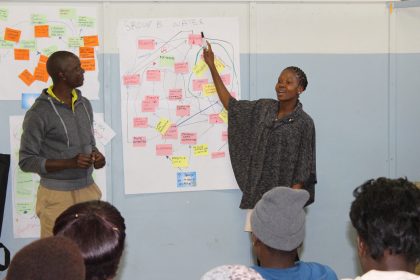
AWARD is currently developing guidelines on how to facilitate climate change dialogues to discuss core concepts, potential impacts and adaptation to support capacity development. The guidelines share our design principles based on social learning and systemic thinking, the process we facilitated through a series of workshops, and lessons learned from our experience of implementing this approach under the Dialogues for Climate Change Literacy and Adaptation (DICLAD) project.
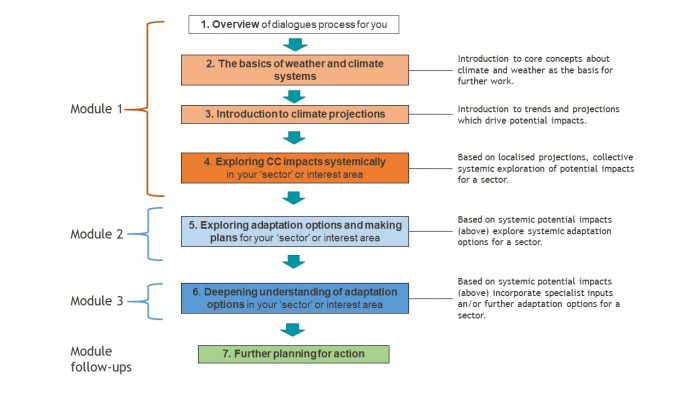
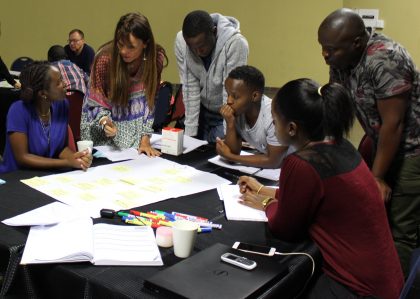
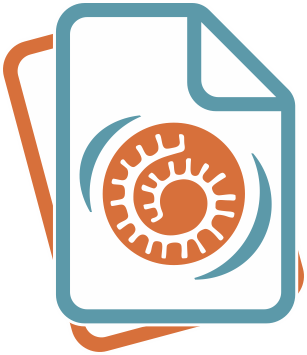
[/column_content] [column_content type=”resoucesBox2″ class=”” background=””]
Related Resources
- Embedding Climate Change in Municipal Planning and Actions
- Dialogues for Climate Change Literacy & Adaptation [DICLAD]
- How is the Climate Changing in the Olifants River Catchment?
- Climate Change: Understanding scenarios, RCP, PPM
- Embedding Climate Change Adaptation within Local Government
- Core Concepts for Climate Change Thinking in the Olifants Catchment
- Tabataba ya phetogo ya tlelaemete – A4
- Tabataba ya phetogo ya tlelaemete – A5
- Literature Review of Climate Resilience in the Mozambique Portion of the Limpopo/Olifants River Basin
- Climate Change Adaptation Option Review Global, National & Olifants Catchment
- Dialogues for Climate Change Literacy & Adaptation
- Historical Trends & Climate Projections per Climate Region Olifants River Catchment
- Historical Trends & Climate Projections Ba-Phalaborwa Local Municipality, Olifants River Catchment
- Historical Trends & Climate Projections Maruleng Local Municipality, Olifants River Catchment
- Historical Trends & Climate Projections Greater Tzaneen Local Municipality, Olifants River Catchment
- Historical Trends & Climate Projections Lepelle-Nkumpi Local Municipality, Olifants River Catchment
- Historical Trends & Climate Projections Elias Motsoaledi Local Municipality, Olifants River Catchment
Visit our resources page to find more
[/column_content]

